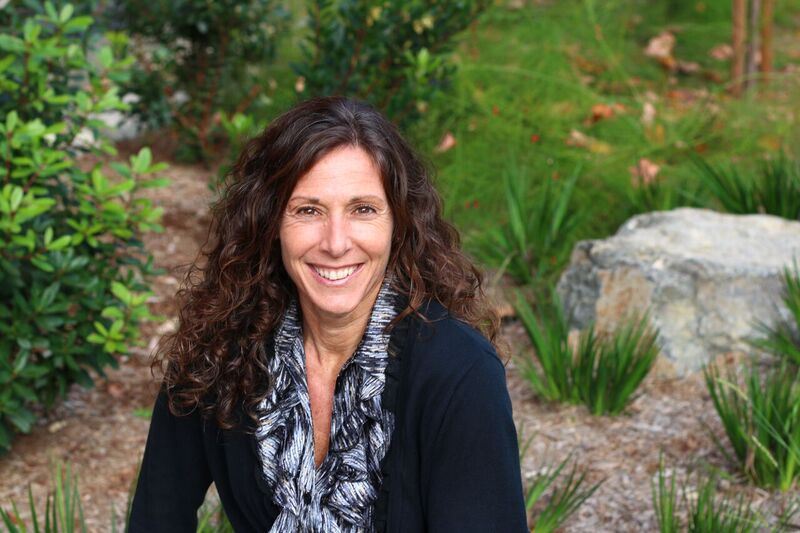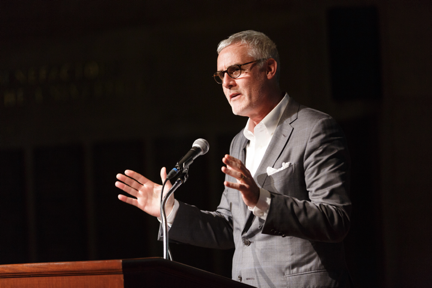FALL CONFERENCE
VIRTUAL ONLINE ONLY FULL CONFERENCE
Coming to Terms:
The Art and Science of Conflict Resolution,
Reconciliation and Civility
November 6, 2021
8:45 am - 5:30 pm
ZOOM
5.5 CEs
CLICK HERE FOR FULL AGENDA
REGISTRATION IS CLOSED IF YOU WANT TO REGISTER YOU MUST EMAIL TAMI AT sdpa@sdpsych.org
|
Registration Fees
Per course
|
|
REGULAR
ENDS 11/5/21
|
| Member |
|
$130 |
| Member Student |
|
$45 |
Non-Member
|
|
$175 |
Non-Member Student
|
|
$65
|
Target Audience:
Licensed Psychologists, Undergraduate and Graduate Psychology & Social Work Students and Allied Mental Health Professionals, Community Members, Community Based Organizations that provide mental health or, other social services to African American children, Youth and Adults.
Mastering Civility 1.25 CEs

Presenter: Dr. Christine Porath
To live together in society, individuals must make sacrifices and exercise restraint, and the sum of these efforts to respect others is referred to as civility. Its converse, incivility, is conceptualized as rude, discourteous behavior that shows low regard for others and violates norms of mutual respect in social interactions. Examples of incivility include talking to others in a condescending manner, making demeaning remarks, and not listening during a conversation. Incivility is one type of workplace aggression, but relative to constructs such deviance, violence, and anti-social behavior, incivility is less intense and more ambiguous with regard to intent. Both experienced and witnessed incivility link to a variety of negative workplace outcomes such as greater distraction, greater stress, lower performance on routine and creative tasks, lower job satisfaction, worse health, and higher turnover.
Given the difficulty of avoiding rudeness in our society, understanding the impact of exposure to rudeness is critical. These disruptions can even be catastrophic, as exposure to rudeness has been shown to negatively impact medical teams’ diagnoses and the performance of the procedures they employ, that ultimately could increase mortality.
To provide an enhanced understanding of how exposure to incivility may have serious impacts, I present research that shows that mere exposure to rudeness is taking a toll on people, robbing us of cognitive resources, negatively affecting mental health, decreasing our focus and performance, and making it more difficult for us to think clearly. I present data on what civility buys people, in the form of greater health, collaboration, and performance. I discuss recommendations for what individuals, clinicians, and leaders can do to minimize the noxious effects of incivility and increase thriving in organizations, communities, and in society.
Learning Objectives:
1. List three costs of incivility (e.g., mental health, performance, stress) and three benefits of civility (e.g., inclusion, collaboration, performance) to clients, their teams, and their organizations.
2. Describe one method for helping a person, clinician, or leader reflect on how civil they are so they are able to link the consequences to their actions.
3. Describe the toll of incivility on mental health and strategies for clinicians to coach people on how best to minimize these effects.
4. Discuss how rudeness, incivility and negativity is contagious based on scientific evidence.
5. Provide individuals with several antidotes to incivility to better cope with the effects on them and those they interact with.
Dr. Christine Porath (Ph.D. UNC-Chapel Hill; B.A. Holy Cross) is a tenured professor at McDonough School of Business at Georgetown University. Porath is author of Mastering Community, Mastering Civility, and co-author of The Cost of Bad Behavior. She published in Academy of Management Journal, Journal of Applied Psychology, Organizational Behavior and Human Decision Processes, Journal of Consumer Research, Harvard Business Review Psychology Today, New York Times, Wall Street Journal, McKinsey Quarterly, Washington Post and others.
She’s worked with Google, United Nations, World Bank, Microsoft, Genentech, Marriott, 3M, Verizon, Ford, World Health Organization, and Cleveland Clinic.
She partners with The Mighty, the largest health community in the world. Her most recent piece in Harvard Business Review included data of over 70,000 community members’ mental health. Porath is partnering with coaches, mental coaches, psychologists, collegiate players, and Olympians and World Cup players as part of a new book.
Creating Peace One Couple at a Time 1.5 CEs

Presenter: Dr. Nancy Young
To change the world, we can start with one couple at a time, and carry the attitudes of curiosity, respect, and compassion outward. Drs. John & Julie Gottman have conducted psychological, observational, and physiological research on couples, leading to a theory for what ingredients make up successful long-term relationships. Even the best couples were found to argue about the same 69% of “perpetual” issues repeatedly. The Gottman model has been validated with all kinds of couples: heterosexuals, lesbians and gays, couples in poverty, the wealthy, racially and age-diverse populations.
The Gottman approach provides both a conceptual blueprint and practical tools/exercises designed to help couples build/improve relationships, including managing inevitable conflicts. Given individual variation in conflict reactivity, strategies must be implemented to lower arousal to enable processing to resume. Intervention occurs in a context of positive affect and healthy communication, created by avoiding the four main destructive conversation patterns, which were found to escalate conflict. How to overcome these hindrances and substitute constructive conversation patterns, or “antidotes”, will be explained. The key is to cultivate deeply respectful curiosity that encourages continuing conversations.
Four practical tools for use with couples’ conflict management will be discussed: (1) a speaker-listener exercise, the Gottman-Rapoport protocol, for listening, understanding, and validation; (2) a “Dreams Within Conflict” exercise, in which an openness to vulnerability and compassion is cultivated; 3) a Compromise exercise to find small solutions to difficult issues; and 4 ) the Aftermath of a Regrettable Incident, to process arguments after the fact. Using these effective, validated tools, we can view couples’ conflict management work as a microcosm for healing division and discord and promote greater harmony in our diverse world.
Learning Objectives:
1. Describe the importance of physiologic reactivity in couples therapy and how this can affect conflict escalation
2. List 4 destructive conversation patterns and their antidotes, and describe how these factors affect the management of conflict in relationships
3. Identify 4 practical conflict management interventions to use with couples
Dr. Nancy Young has over thirty years of experience specializing in therapy with adult individuals, couples, and groups. She emphasizes compassion and nonjudgment, while using a holistic/transpersonal approach. Utilizing a variety of therapeutic methods, including cognitive-behavioral, Voice Dialogue, EMDR, and Gottman Method couple’s therapy, Dr. Young is certified in EMDR. She is a Certified Gottman Method Couple’s Therapist, an Art & Science of Love (Gottman) Workshop Leader, and a Gottman Level 1, 2, & 3 Master Trainer,
For twenty years at Chapman University, Dr. Young taught Psychology classes, such as: Introduction to Psychology, Interpersonal Attraction & Romantic Love, Human Sexuality, Sexual Disorders & Treatment, and Chemical Dependency Treatment. Dr. Young's academic research interests were on romantic love—the differences between intense/compelling ("limerent") and secure/comfortable ("attachment") love experiences, behavioral self-reliance in women, and the use of videotaped therapy in chemical dependency treatment.
Attitudes Toward Civility and Reconciliation 1.25 CE

Presenters: Janette S. Williams, IMBA, PhD
Course Description:
The everyday use of the word “attitude” is often described as an established way of thinking or feeling about something. Some research has argued that one’s attitude is as innate to the person as one’s personality (Allport, 1935). However, the research has showed that attitude is a hypothetical construct because of its inaccessibility to direct observations. Research has only inferred one’s attitude based on measurable reactions to an object, for example, favorable or unfavorable; positive or negative. Without thinking of it, we also make inferences based on reactions we observe (attitude-behavior relationship model) to interpret situations. This unidimensional interpretation limits our ability to establish new ways of feeling, acting, and thinking about something. Therefore, to establish new attitudes with an expanded, diverse population, we need a multidimensional interpretation of attitude, that is the tripartite characteristic of attitude (affect, behavior, and cognition–ABC–Ostrom, 1966).
The focus of this proposed presentation is to define and discuss the tripartite characteristic of attitude and link it to our attitude towards ourselves and others. We will then explain and relate how each characteristic positively and negatively influences our attitude towards civility and reconciliation with diverse populations. We will explain how individual seeking services can expand the likelihood of increased civility and reconciliation through exploring the three characteristics of attitude instead of considering it as a single construct. We will also explain the underlying aspects of attitude that are attached to deep-seated biases and habits, which are automatic, spontaneous, and difficult to change. Collectively, and throughout the presentation, we will explore practical strategies for ourselves and our clients to establish attitudes that bring about civility and reconciliation.
Learning Objectives:
- Participants will be able to define and discuss the three characteristics of attitude: Affect, Behavior, Cognition (ABC).
- Participants will be able to explain how each characteristic positively and negatively influences our attitude towards civility and reconciliation with diverse populations.
- Participants will be able to evaluate and intervene to influence the characteristics of attitudes in themselves and their clients to increase civility and reconciliation.
Dr. Janette S. Williams is a consulting/organizational psychologist and business consultant. Her work focuses primarily on tapping into the ingenuity and collective wisdom of individuals and groups to solve complex organizational challenges. With over thirty years of extensive insight working in the private, public, non-profit, and government sectors, she infuses a multidiscipline system approach to increase motivation/productivity of employees, while reducing costs/expenses for the organization. Besides consulting, Dr. Williams is a program faculty at several colleges in San Diego, CA. She has taught graduate and undergraduate courses and workshops on Cultural Diversity in Organizations, Business Principles, Motivation and Productivity, Strategic/Change Management, Leadership in Healthcare, Creativity and Innovation, and Organizational Behavior. Janette holds a BS in Cognitive Science from UC San Diego, an International MBA from the Marshall Goldsmith School of Management, and a PhD in Organizational/Consulting Psychology from Alliant International.
Mitigating the Impact of Parental Conflict on Children 1.5 CEs

Presenter: Shawn Weber J. D.
Research shows that parental conflict, particularly in family law cases, can cause emotional and physical harm to children. Although legal rights and responsibilities are a large part of the discussion relating to family law disputes, the potential and actual harm to children resulting from parenting disputes is largely a matter of public health. The judicial processes available to families for divorce and child custody disputes are largely focused on legal concerns rather than addressing the short-term and long-term health of the parties. While the “best interests of the child” standard is employed in California legal processes, this standard fails to address the impact of adversarial processes which encourage rather than reduce conflict.
The presenter proposes the use of various methods of alternative dispute resolution aimed at reducing parental conflict and children’s exposure to such conflict. The role of the mental health professional in working with legal professionals in a collaborative context to reduce conflict is also discussed. The presenter will survey models of dispute resolution in common use today including mediation, Collaborative Practice and Parenting Coordination. The presenter will discuss current California law relating to custody and visitation issues. Finally, the presenter will address various legal concerns mental health practitioners may face in assisting families engaged in judicial processes and how to pragmatically avoid pitfalls.
Teaching styles will include a didactic “lecture” format and will include significant question and answer time for exchange of experiences and ideas. The objective is to provide practical suggestions for how mental health professionals can participate positively in family law dispute resolution processes to reduce parental conflict and its negative impact on children.
Learning Objectives:
1. Describe how parental conflict can adversely affect emotional/developmental aspects of a child’s life.
2. Identify 2-3 conflict resolution approaches which may be used by psychologists or family law practitioners, which may mitigate the negative effects of parental conflict on children during a divorce or significant family conflict.
3. Describe how a psychologist might discern when their client may need an attorney, how to find a qualified family law attorney, and clinical/ethical issues for psychologists in referring to and coordinating with family law attorneys in compliance with BOP regulations.
Shawn Weber is a San Diego divorce attorney, specifically trained in Divorce Mediation and in Collaborative Practice. For more than 20 years, Shawn has worked exclusively in the area of family law. He is certified by the State Bar of California Board of Legal Specialization as a Legal Specialist in Family Law. As a co-founder of the nationally prominent mediation training company, Family Resolution Institute, Shawn provides basic and advanced training to mediators from around the country.
He served as President of the statewide organization Collaborative Practice California (CP Cal) from 2015 to 2016. Additionally, Shawn was honored to receive the prestigious Eureka Award in 2015 for making “significant contributions and demonstrating an abiding dedication to establishing and sustaining Collaborative Practice in California.” Shawn regularly serves as a Judge Pro Tem with the Mandatory Settlement Conference panel for the Superior Court of California, County of San Diego.
The Way Out - How to Overcome Toxic Polarization - NO CEs for this course

Presenter: Peter T. Coleman, Ph.D.
The partisan divide in the United States has widened to a chasm. Legislators vote along party lines and rarely cross the aisle. Political polarization is personal, too—and it is making us miserable. Surveys show that Americans have become more fearful and hateful of supporters of the opposing political party and imagine that they hold much more extreme views than they actually do. We have cordoned ourselves off: we prefer to date and marry those with similar opinions and are less willing to spend time with people on the other side. How can we loosen the grip of this toxic polarization and start working on our most pressing problems?
The Way Out offers an escape from this morass. The social psychologist Peter T. Coleman explores how conflict resolution and complexity science provide guidance for dealing with seemingly intractable political differences. Deploying the concept of attractors in dynamical systems, he explains why we are stuck in this rut as well as the unexpected ways that deeply rooted oppositions can and do change. Coleman meticulously details principles and practices for navigating and healing the difficult divides in our homes, workplaces, and communities, blending compelling personal accounts from his years of working on entrenched conflicts with lessons from leading-edge research. The Way Out is a vital and timely guide to breaking free from the cycle of mutual contempt in order to better our lives, relationships, and country.
Dr. Peter T Coleman is a professor of psychology and education at Columbia University who studies polarizing, intractable conflict and sustainable peace, and whose next book titled, The Way Out: How to Overcome Toxic Polarization will be released by Columbia University Press on June 1, 2021.
----------------
Conflict of interest or commercial support:
There is no commercial support related to this program and she is not getting paid by your company for this course. There is no conflict of interest related to this program.
Conflict of interest or commercial support:
Presenters state that they have no conflicts of interest and are not receiving commercial support for this course.
CE Grievance Procedure
SDPA is fully committed to conducting all activities in strict conformance with the APAs Ethical Principles of Psychologists. SDPA will comply with all legal and ethical responsibilities to be non-discriminatory in promotional activities, program content and in the treatment of program participants.
See CE Grievance Procedure.
Attendance Policy: CE Credit and Certificates will not be issued to those who arrive later than 10 minutes or leave early from any course scheduled time. This policy is strictly enforced to ensure compliance with APA Guidelines.
Cancellation Policy: No refund will be given to any registered individual who is a no-show to a course. Any individual canceling within 72 hours of a course will be refunded 50% of the course fee.
ADA Compliant venue for accessibility accommodations contact Tami Magaro - sdpa@sdpsych.org.
 American Psychological Association
American Psychological Association
The San Diego Psychological Association (SDPA) is approved by the American Psychological Association (APA) to sponsor continuing education for psychologists. SDPA maintains responsibility for this program and its content.
LCSW, LFMT, LEP & LPCC
In California, APA approved CE’s are valid for licensed psychologists, licensed school psychologists, LCSW, LMFT, LEP & LPCC licensees. Though APA is a national organization, the out of state licensee should check with their state governing board to make sure that APA approved CE'’s are valid in their state for their license.
See SDPA Website Continuing Education Policies.